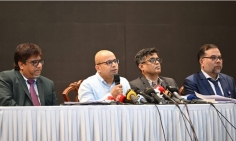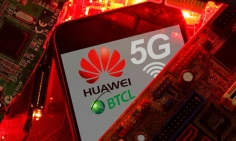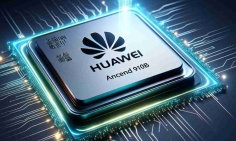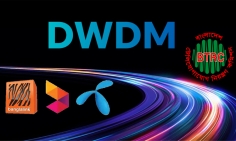BTCL’s 5G Project Plagued by Allegations of Corruption and Cost Inflation
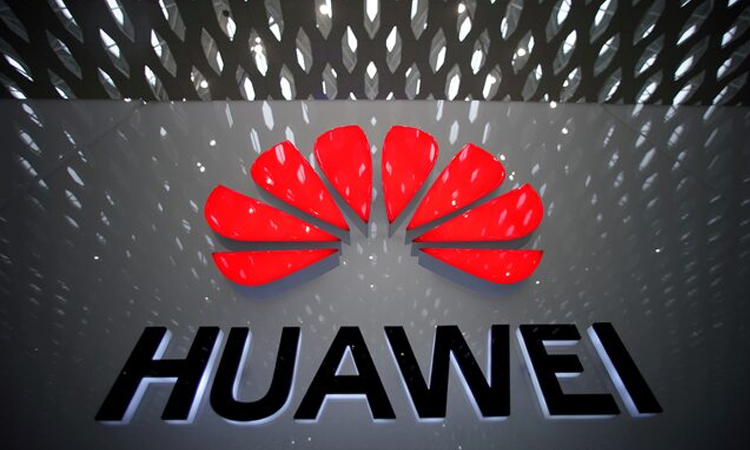
Bangladesh's ambitious 5G infrastructure development has been overshadowed by serious allegations of corruption, cost inflation, and irregularities involving influential officials and foreign companies.
Experts from the Bangladesh University of Engineering and Technology (BUET) have recommended that to meet the country’s internet bandwidth demand by 2030, infrastructure with a capacity of 26 terabytes would be sufficient. However, under the Bangladesh Telecommunications Company Limited (BTCL) 5G project, authorities opted to procure equipment with an excessive 126-terabyte capacity — raising concerns of unnecessary expenditure and potential misuse of public funds.
Despite the project’s original budget of $15 million, the procurement costs have ballooned to around $30 million, with a total project allocation of $42 million. Critics have warned that much of the purchased equipment will remain unused, resulting in significant financial losses. Allegations have also surfaced regarding collusion with Chinese companies accused of supplying overpriced, unnecessary components, potentially leading to a loss of at least $15 million.
The situation has been further complicated by Bangladesh's ongoing dollar crisis, which has hindered the ability of the Chinese contractor to open the required Letter of Credit (LC), delaying the project and fueling suspicions of mismanagement. Many believe only urgent intervention from Prime Minister Sheikh Hasina can prevent a substantial loss of public funds under the guise of 5G development.
Political Pressure and Internal Conflict
According to sources, former Telecommunication Minister Mustafa Jabbar and former Secretary of the Posts and Telecommunications Division, Abu Hena Morshed Zaman, allegedly exerted undue pressure on BTCL’s then-Managing Director, Asaduzzaman Chowdhury, to award contracts to their preferred companies. Chowdhury resisted these attempts, cancelling the tender process and recommending action against contractors suspected of irregularities. His stance reportedly angered influential officials, leading to his transfer and subsequent suspension.
In November last year, the High Court intervened, suspending Chowdhury's dismissal for six months. Both the Anti-Corruption Commission (ACC) and internal investigations later uncovered evidence of corruption in the project, referring to it as a "Cheating of the State."
The project in question — titled “Development of BTCL's Optical Fibre Transmission Network Utilizing 5G” — involved a Tk 463 crore ($42 million) tender process. Three companies participated: ZTE Corporation, Huawei Technologies Limited, and Nokia Solutions.
Allegations of Irregular Tender Process
ACC documents reveal that none of the three bidders met the full technical requirements. Nevertheless, all were declared qualified by a seven-member technical committee. Then-Managing Director Asaduzzaman Chowdhury refused to approve the technical evaluation report, citing irregularities. His subsequent transfer and suspension were later overturned by the High Court.
Despite these concerns, Huawei Technologies Limited was awarded the project following a decision by the Central Procurement Technical Unit (CPTU) review panel.
“As per service rules, once the CPTU issues a final decision, there is no opportunity for further comment. However, I believe that a thorough investigation by the ACC will reveal significant information,” Chowdhury stated during the probe.
Minutes from BTCL's 213th board meeting revealed that the proposed 126-terabyte infrastructure far exceeds the projected demand of 26 terabytes by 2030 — with only half of the total capacity expected to be utilized even by 2040. Industry experts have called the excessive capacity "absurd" and claim it reflects an intention to inflate project costs unnecessarily.
Claims of Political Interference
Allegations suggest that former Minister Mustafa Jabbar favored ZTE Corporation, while former Secretary Zaman supported Huawei Technologies Limited. Documentary evidence supports claims of both officials influencing the tender process.
On April 24 last year, ZTE filed a formal complaint with Jabbar regarding flaws in the technical evaluation. Internal emails from Zaman’s office also directed project officials to update BTCL’s board chairman on procurement matters in line with Zaman’s preferences. Despite these communications, Huawei was awarded the contract.
An ACC official confirmed that political interference by the former minister and secretary in an autonomous body like BTCL constitutes an abuse of power and could lead to legal action.
In response, Jabbar stated that his only concern was ensuring the latest technology was procured, adding that disagreements over the process arose between the secretary and BTCL’s managing director. He denied favoring any specific contractor.
Repeated attempts to contact former Secretary Abu Hena Morshed Zaman were unsuccessful. It was later discovered that he is currently residing in Barcelona, Spain.
Excess Capacity Raises Red Flags
Bangladesh’s total internet bandwidth demand across 64 districts stands at 84,687 Gbps, with BTCL supplying only 25,321 Gbps (30%) and private operators meeting the remaining 70%. BTCL currently uses just 7 terabytes of its infrastructure, yet plans were made to procure 126 terabytes — over 100 terabytes more than needed.
The ACC’s preliminary findings indicate this decision could lead to a loss of at least $15 million in government funds.
When asked about alleged influence on CPTU decisions, Huawei’s Head of Media for Bangladesh and South Asia, Tanveer Ahmed, responded that the company would only issue a statement after verifying the details of the ACC investigation.
Industry experts continue to warn that unless immediate action is taken to halt unnecessary procurement, Bangladesh risks squandering millions of dollars on a flawed, politically driven 5G project.



